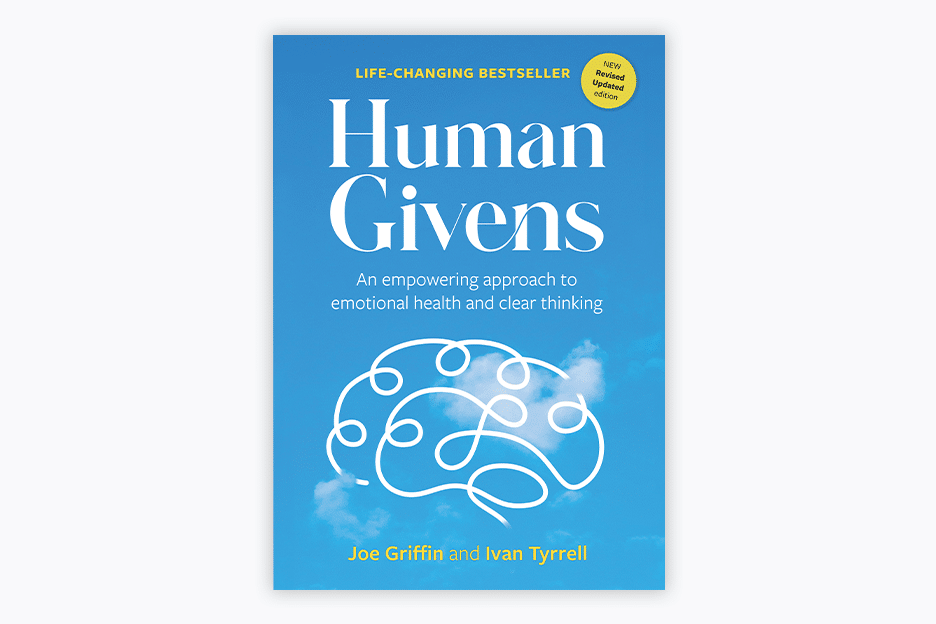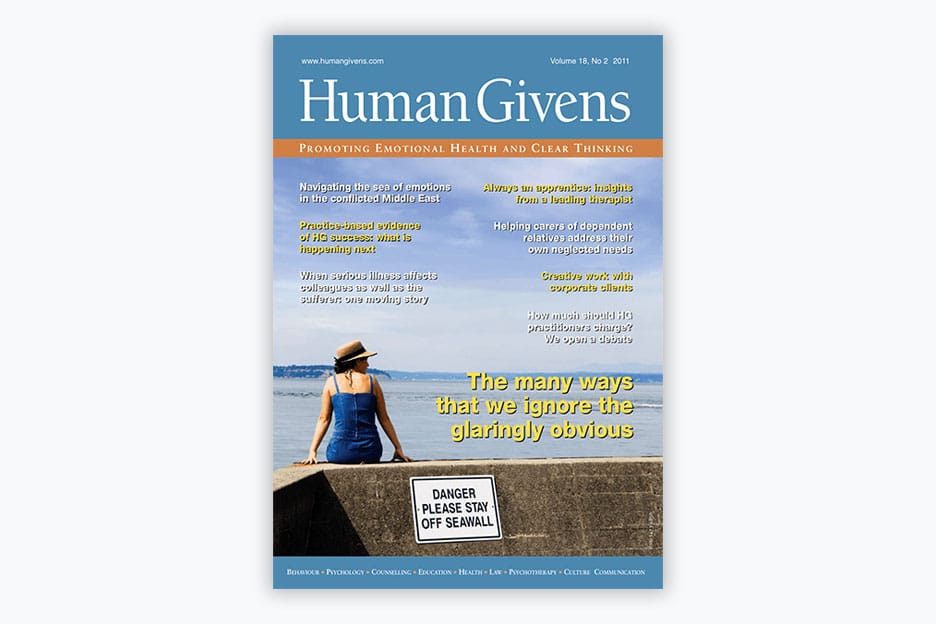Volume 18, No 2, 2011
Editorial:
What the evidence does and doesn’t tell us
How we are: News, views and information:
- Research conclusions
- insecure attachment and obesity
- eyewitnesses and rapport
- how language affects performance
- transforming quality of life in care homes
- how a nap affects moodtaking
- drug companies’ influence on ADHD
- storytelling in secure units
- bipolar symptoms predictable
- social connection and empathy
- psychosis
- anorexia
- conformity
- test of HG therapy for adolescents
Where do you draw the line?
Pat Williams considers rules applied without discrimination.
High emotion and the Middle East
John Bell explores how the human givens approach could help lower the emotional temperature in Middle East conflicts.
Emotionally contagious ill health
Joy Griffiths describes the wide-reaching impact of serious illness suffered by a work colleague.
Balancing up the business
Janice Haddon’s highly successful work with corporate clients, based on the human givens approach.
Ignoring the glaringly obvious
Margaret Heffernan talks with Denise Winn about the dangerous human tendency to avoid seeing what we don’t want to see.
The feeling of being cared for
Bindi Gauntlett describes her workshops for carers of dependent relatives that help them address their own neglected needs.
An evident success
We have gathered a great deal of practice-based evidence of effectiveness. Bill Andrews explains what’s happening next.
FOR DEBATE: Money, money, money
John Halker raises the sticky subject of therapists’ fees.
Reflections on the stories told
Insights from narrative therapy by the late Michael White.





Reviews
There are no reviews yet.